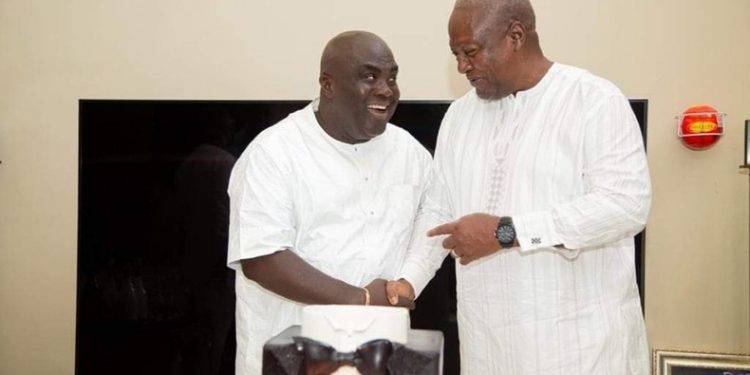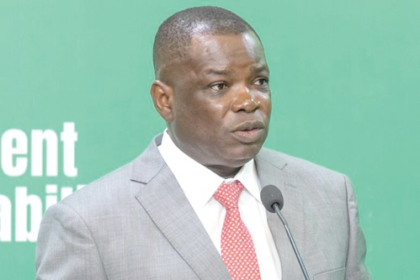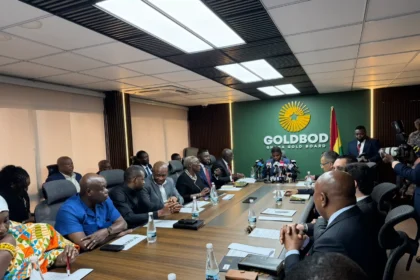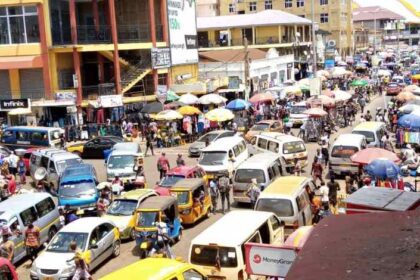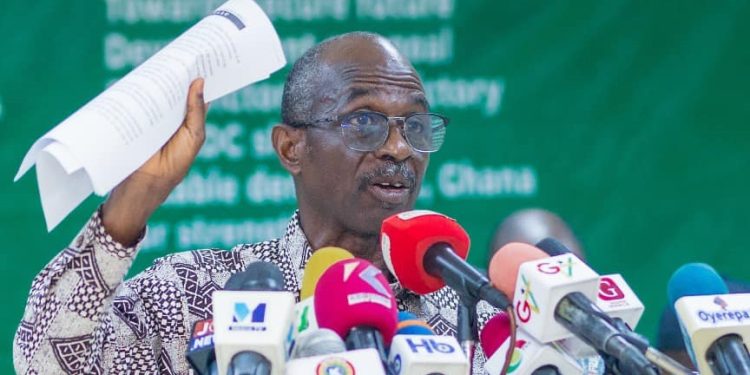Governor of the Bank of Ghana (BoG), Dr. Johnson Asiama, has raised alarm over significant amounts of undeclared foreign currency being taken out of the country, warning that such practices threaten Ghana’s economic stability and efforts to combat financial crime.
Dr. Asiama revealed that individuals are moving more than $1 million in cash across Ghana’s borders without proper declaration.
“If you look at the currency declaration framework, the intelligence we’ve received shows that some individuals are carrying large volumes of cash—over a million dollars—out of the country without declaring them,” Dr. Asiama said. “These are serious leakages.”
He emphasized that such activity undermines anti-money laundering efforts and called for stronger coordination among financial regulators, including the Ghana Revenue Authority (GRA).
“As regulators, it’s our job to close these gaps. If you need to carry large sums, those must be declared. The source of funds should be known,” he added.
New Market Measures to Curb Loopholes
The Governor defended the BoG’s recent market directives, including restrictions on large foreign currency withdrawals, saying they are part of a broader effort to increase accountability and prevent abuse of the financial system.
“We’re not overreacting to market pressures. We’re simply redefining the rules so that the financial market functions efficiently,” Dr. Asiama stated. “Think of it like a football match—there must be rules within which the game is played.”
He clarified that one of the BoG’s controversial notices on large cash withdrawals was prompted by investigations revealing questionable transactions by some corporations.
“For instance, some companies that earned export proceeds were attempting to withdraw millions of dollars in cash—sometimes $10 million—over the counter,” he said. “The question is: what do they need that cash for when their payments are made abroad? You don’t need to physically carry that money.”
He explained that such large withdrawals raise red flags and are not justified in most corporate scenarios, stressing that the central bank now expects such entities to comply with non-cash transaction protocols.
Individuals Will Not Be Affected the Same Way
Dr. Asiama reassured the public that ordinary individuals would not be unduly affected by these restrictions.
“If you’re an individual and you need a few hundred dollars—say $100 or $200—you can still access it. You can discuss with your bank whether to receive the amount in cash, pay a commission, or convert it into cedis. You have options,” he said.
Stakeholder Engagement Was Key
The BoG Governor also revealed that the banking industry was thoroughly consulted before the implementation of these new policies.
“We engaged the banks. We had several meetings with bank CEOs and took their feedback seriously,” he noted. “That’s why the banks are not complaining. These notices were not arbitrary—they were developed in consultation with the sector.”
Dr. Asiama concluded by expressing confidence that the new measures will help stabilize the financial system, seal critical loopholes, and enhance regulatory oversight in Ghana’s evolving economic environment.






